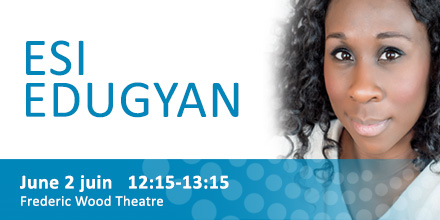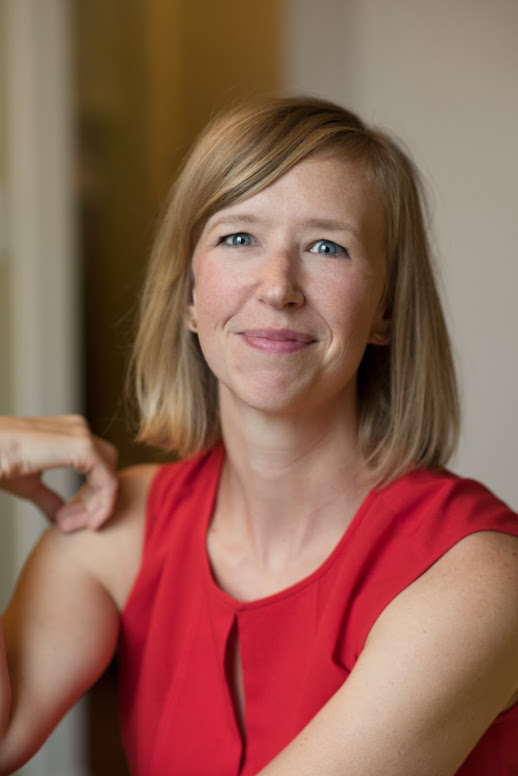At Congress 2019, the Big Thinking lecture series considers how the arts function as a platform to engage with scholarship in the humanities and social sciences. Organizers were inspired by three big questions: Who speaks for whom? Whose stories get told? And who gets left out?
In the first of what will be five events at UBC’s Frederic Wood Theatre, writer Esi Edugyan sat down with Minelle Mahtani, Associate Professor in UBC’s Institute for Social Justice. After reading an excerpt from her Giller Prize winning third novel, Washington Black, Edugyan spoke about her process as a writer, but also about the many ways the act of crafting a novel can speak to larger personal and political questions.
For Edugyan, novel writing is a means of making space for convergences of disparate ideas or unlikely connections. “I’ll often have five books on the go,” she said of her research process, “so I can see things come together that might not otherwise seem alike.” Research is a way of opening herself up to seeing things that might otherwise go unseen. Washington Black, in particular, was inspired by a footnote in the report of an old criminal trial.
Edugyan and Mahtani talked about toxic white benevolence—the damaging effects of good intentions as they manifest in both the book and the academy—and the political power of shared listening. “The act of reading a book and reading about someone who is completely unlike yourself, when you’re forced to confront their lives on this very granular level—to see the actual structure of someone else’s thinking—this can be revolutionary,” Edugyan said.
She also spoke about how, in writing historical fiction, she must move between imagination and the factual details of the historical record: “When I was reading about how slavery manifested in Barbados, I had to honour those lives that were lost. And part of the honoring was to depict the horrible brutality exactly as I had read it.”
The interview inspired some complicated questions: How can the combination of benevolence and privilege be damaging? When and how do we fail to do the work of confronting our own complicity? And how might we tune our attention toward the footnotes around us, the kinds of stories that might otherwise go unseen?
Mandy Len Catron is a writer and a faculty member in UBC’s Optional Residency MFA program in Creative Writing. Catron is the author of How to Fall in Love with Anyone: A Memoir in Essays. The book was listed for the 2018 RCB Taylor Prize and the Kobo Emerging Writer Award. Her writing can be found in The New York Times, The Guardian, The Rumpus, The Washington Post, and The Walrus as well as literary journals and anthologies. She teaches creative writing at the University of British Columbia.
To see more, check out our photo album from the event on Facebook.


